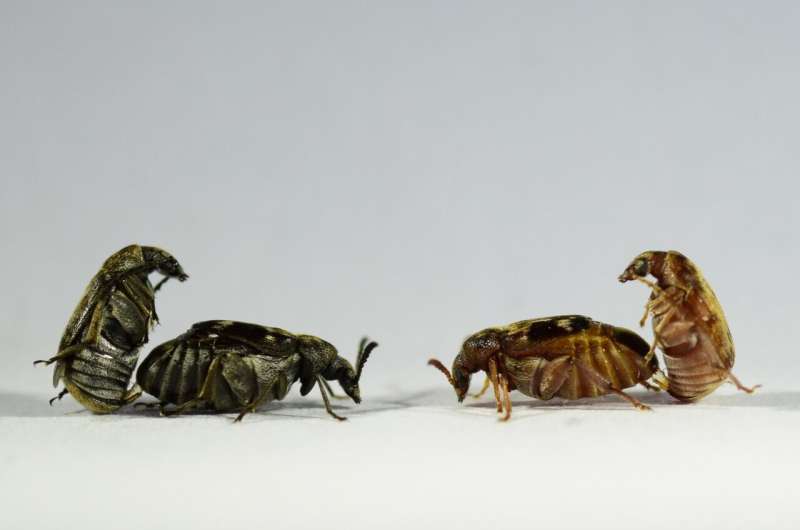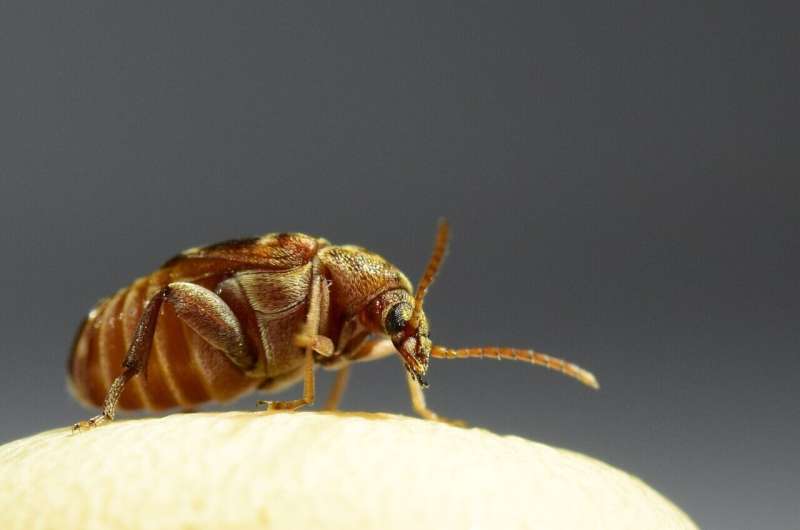This article has been reviewed according to Science X's editorial process and policies. Editors have highlighted the following attributes while ensuring the content's credibility:
fact-checked
peer-reviewed publication
trusted source
proofread
Male beetles neglect their genomes when competing for females

Male beetles face a trade-off between competing with other males for mating opportunities and repairing damage to their sperm DNA, according to a study published April 4 in the open access journal PLOS Biology by Mareike Koppik from Uppsala University, Sweden, and colleagues.
Mutations in sperm and egg DNA can reduce the survival and fitness of offspring, so animals use a variety of repair and maintenance mechanisms in their reproductive cells. However, previous research has shown that sperm DNA has more mutations than egg DNA in a variety of species, suggesting that there may be a trade-off between competing for access to females and investing energy in repairing damaged DNA.
The researchers investigated this hypothesis using laboratory colonies of the seed beetle (Callosobruchus maculatus) that had undergone 50 generations of experimental evolution. They compared male beetles from lineages that were manipulated to be monogamous, therefore minimizing sexual selection ("N males") with lineages that had experienced intense sexual selection but minimal natural selection ("S males").
They found that S males fathered more offspring than N males in sperm competition experiments. However, after exposure to DNA-damaging radiation, S males produced lower quality offspring compared to N males and control males. Using RNA sequencing, the team identified 18 genes that changed their activity in the reproductive tracts of males in response to radiation. Several of these genes are thought to play roles in cellular maintenance and DNA repair. A male's post-radiation gene expression profile was correlated with the survival and fertility of his offspring.
The authors say that males from lineages exposed to intense sexual selection invest more in competition with other males, at the expense of repairing DNA damage. This suggests that sexual selection can drive the evolution of greater flexibility in male reproductive traits.

"In these beetles, as in many other species with internal fertilization, intense male competition for mating success continues among the sperm of rival males inside the female after the mating itself is done," co-author David Berger adds. "Our study shows that males that invest too much into this competition, while winning the race for fertilization of female eggs, seem to care less about maintaining the quality of their sperm, with the cost of this strategy being paid by their future offspring."
More information: Koppik M, Baur J, Berger D, Increased male investment in sperm competition results in reduced maintenance of gametes, PLOS Biology (2023). DOI: 10.1371/journal.pbio.3002049
Journal information: PLoS Biology
Provided by Public Library of Science



















